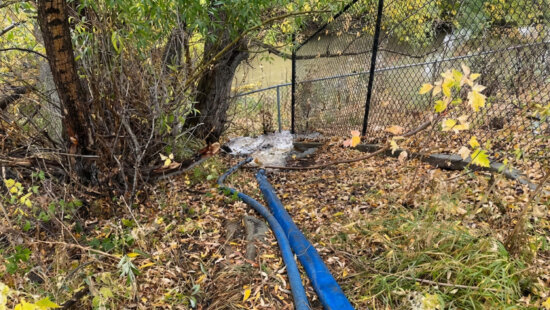Education
Sept. 20 PCSD School Board meeting to pass new sensitive materials policy required by State

Photo: Tom Hermans
PARK CITY, Utah — Park City School District (PCSD) will hold its regular School Board meeting on September 20 at 4:00 p.m. at 2700 Kearns Blvd. The meeting will be made public virtually. An important item of discussion for the board meeting is a new Sensitive Materials district policy that will be created in accordance with Utah State law H.B. 374 (Sensitive Materials in Schools).
Utah State Legislature adopted H.B. 374 in 2022 after it was sponsored by Rep. Ken Ivory and Sen. Todd D. Weiler. The law prohibits “sensitive material in schools” and requires all Utah school districts to have policies with similar prohibitory language and standards. It is enforced by the Utah State Board of Education, which mandates that all districts adopt the required policy by October 1 of this year.
TownLift spoke with Park City School District spokesperson Heidi Matthews about the September 20 meeting and proposed policy that will put PCSD in accordance with the state law. Matthews has many years of teaching experience and continues to work as a teacher on special assignment in PCSD.
Matthews explained that “the district already has a policy, #9050, that outlines the approval process for materials taught in PCSD schools.” This policy also includes a format and protocol for reviewing challenged reading materials, in which a committee is formed to rule on the books’ appropriateness as teaching materials.
“Until recently, we haven’t had a challenge in many, many years,” continued Matthews, adding that policy #9050 also includes an option for parents to request alternative reading materials if they disagree with the appropriateness of books being used in PCSD schools.
The September 20 board meeting will feature an additional policy, #9051, that explicitly includes the stipulations of the State law introduced in H.B. 374. The key differences between policies #9050 (the existing reading materials policy) and #9051 (the new Sensitive Materials policy) are that the new policy:
- Defines sensitive material by explicitly using language from H.B. 374
- Prohibits sensitive material that meets this definition
- Includes a new, additional process for parents to raise concern about specific reading material
- Exempts sex education materials
H.B. 374 and policy #9051 define sensitive material as “material that is pornographic, indecent or harmful for children.” They cite Utah Code 76-10-1235, which outlines the process for “assessing pornographic or indecent material on school property.” The code defines “pornographic material” as something that “taken as a whole appeals to prurient interest in sex, is patently offensive in the description of nudity, sexual conduct, and sexual excitement, and does not have serious literary, artistic, political, or scientific value.”
The code also specifies that sensitive material can include things that are “defined as harmful to minors” in that they “taken as a whole, appeal to the prurient interest in sex of minors, are patently offensive to prevailing standards in the adult community, and have no serious value.” The code goes into more descriptive detail regarding material harmful to minors by describing nudity at length:
“The showing of the human male or female genitals, pubic area, or buttocks, with less than an opaque covering; the showing of a female breast with less than an opaque covering, or any portion of the female breast below the top of the areola; or the depiction of covered male genitals in a discernibly turgid state.”
The language introduced by Utah State legislature for book prohibition could allow for new precedents to be established for increasing the number of books removed from the classroom. According to Matthews, the “entire discussion of book banning is an additional stressor for educators who are already swamped with staffing shortages, rebuilding from the impacts of COVID, and increased scrutiny from local parents.”
As mentioned above, Utah code exempts materials for sex education or “medical courses.” According to Matthews, the new policy allows for parents and students to “opt-out” while a book is under review. Books will not be removed from the curriculum while they are under review.




















